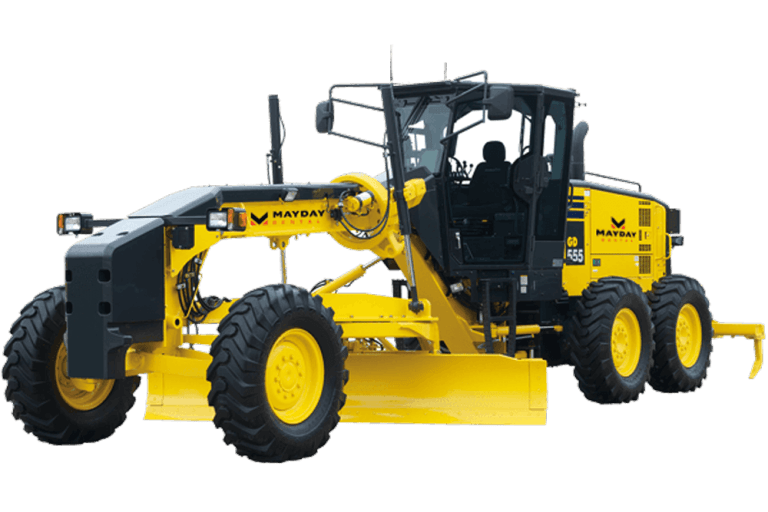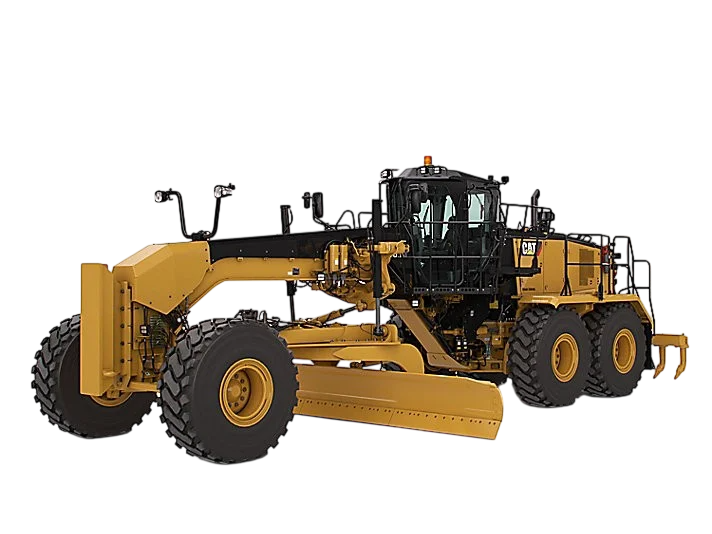
General roadwork, medium-scale site preparation, and urban infrastructure projects.

Highway development, ground leveling, and large-scale grading operations.

Heavy-duty ground works, mining, large road works, and industrial zone preparation.

High-production machine for large-scale applications and major infrastructure projects.
Explore various models of graders from hire companies near you.
Grader hire costs vary based on size, duration, and location. Below are typical hourly and weekly rates for reference, with additional fees for attachments, fuel, and extra services.
| Grader Size | Dry | Wet |
| 12-Foot Blade | $75p/h +GST | $135p/h +GST |
| 14-Foot Blade | $90p/h +GST | $145p/h +GST |
| 16-Foot Blade | $105p/h +GST | $160p/h +GST |
Attachments: Specialized tools, such as compaction wheels, rock breakers, or augers, might cost extra and usually range from $20 to $50 per hour.
Travel and Mobilization: Some providers charge for the time it takes for the operator to travel. If you decide to upgrade later, there can be an additional cost involved.
Minimum Hire Durations: For machinery weighing up to eight tonnes, many companies impose minimum hire durations of three hours + one hour for travel.
Penalty Rates: There may be an additional fee, often around 30%, for work done on Sundays, public holidays, or beyond regular business hours.
Since pricing might vary depending on area demand and availability, it is best to request multiple quotes for the most accurate and current rates.
To maximize efficiency and adaptability, graders can be equipped with various attachments for different tasks. Below are some of the most widely used varieties:
Ripper — Used for breaking up hard surfaces, compacted soil, or rock before flattening.
Scarifier — Loosens and prepares surfaces for fine surface levelling, often used for resurfacing roads.
Snow Wing — Extends the grader’s reach for efficient snow removal.
Dozer Blade — Helps in pushing large volumes of material, ideal for rough grading tasks.
GPS Machine Control — Provides high-precision soil preparation by using GPS technology to guide the machine.
Rear Tow Hitch — Allows the grader to tow other machinery, like compactors or rollers.
Frequently Asked Questions
Yes, operating a plant usually without an appropriate license or certification is forbidden, particularly for public works or civil works. Operators in the majority of regions should obtain specialized training, such as a certification in heavy machinery such as Australia’s Heavy Rigid (HR) license. Working on construction sites also require an induction card (White Card).
Caterpillar (CAT), Volvo, Komatsu, Case, and John Deere are among the top-tier manufacturers for hire. Volvo offers reliable, easy-to-use versions, while Caterpillar delivers accuracy and fuel efficiency. John Deere is renowned for its user-friendliness and powerful performance in a variety of activities, Komatsu for its sturdy performance, and Case for its adaptability in construction.
There are several places to hire a plant short and long term, starting from your local branch to specialty equipment hire companies. Usually grader hire services are offered by most construction businesses across Australia. Additionally, grader rentals can be made at nearby suppliers or dealerships.
Size, duration, location, and whether you choose dry hire (the most affordable) or wet hiring all affect how much it costs to hire a grader. Dry hire prices typically fall between $75 and $160 per hour, with weekly costs ranging from $1,200 to $3,000. On top of the dry hiring fees, wet hire typically costs an extra $50 to $70 per hour and includes an operator.
Check out these related articles for valuable insights into graders, including what they are, how to choose the right grader size, and more.